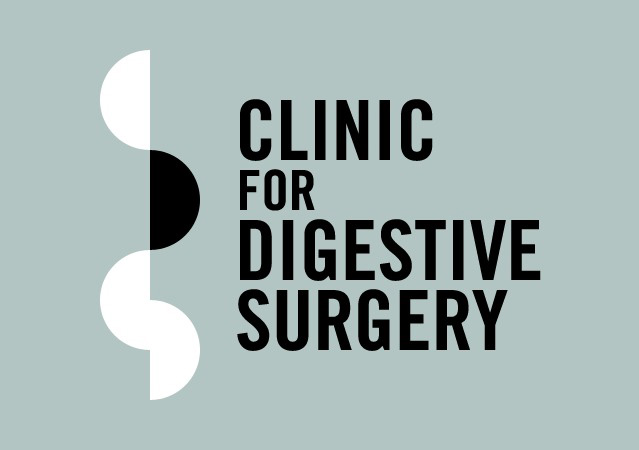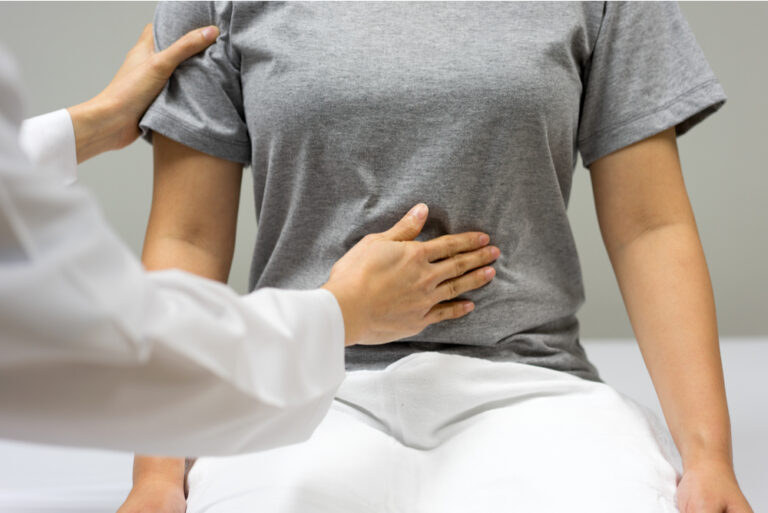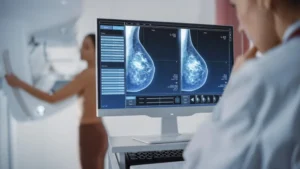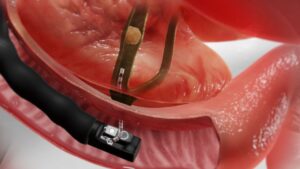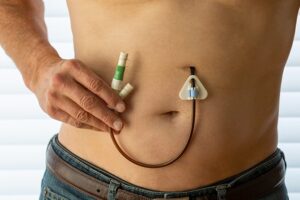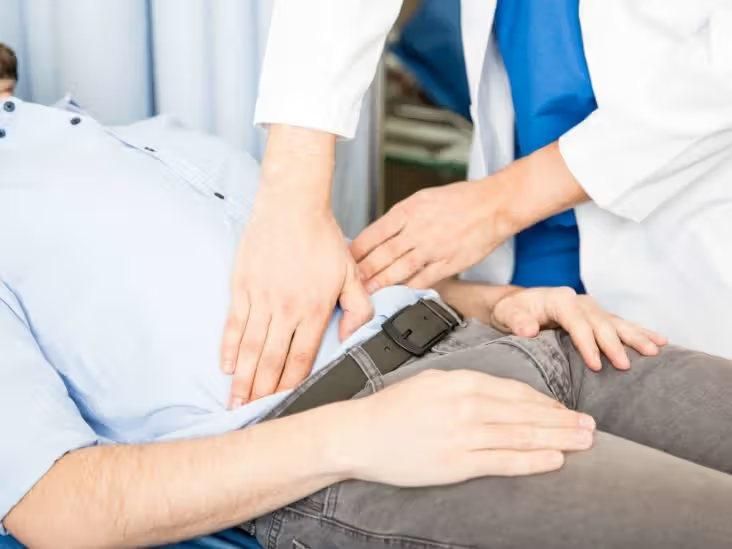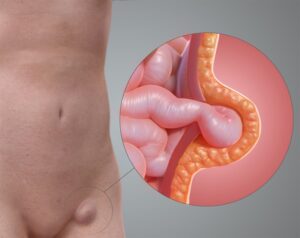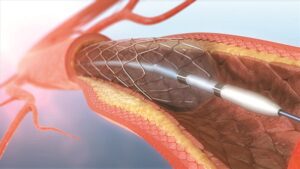What is Intestinal Obstruction?
Intestinal obstruction occurs when a blockage in the intestines prevents the normal movement of food, fluids, and gas. This blockage can happen in the small intestine or the large intestine (colon). The obstruction can be partial, allowing some material to pass through, or complete, fully blocking the passage of intestinal contents.
Symptoms of Intestinal Obstruction
The symptoms of intestinal obstruction can vary depending on the location and severity of the blockage but typically include:
- Abdominal Pain and Cramping – Often severe and comes in waves.
- Vomiting – This may include vomiting bile or faecal material.
- Constipation – Inability to pass stool or gas.
- Swelling of the Abdomen – The abdomen may feel bloated and firm.
- Loss of Appetite – Due to the discomfort and inability to digest food.
Causes of Intestinal Obstruction
There are several potential causes of intestinal obstruction:
- Adhesions – Bands of scar tissue from previous surgeries or infections that can cause the intestines to stick together.
- Hernias – Parts of the intestine that protrude through weakened areas of the abdominal muscles.
- Tumours – Growths inside the intestine that can block the passage.
- Intussusception – A condition where one part of the intestine slides into an adjacent part, causing a blockage.
- Volvulus – Twisting of the intestine that cuts off blood flow and obstructs passage.
- Paralytic Ileus – A condition where the muscles of the intestine fail to contract properly, often due to surgery, infections, or certain medications.
- Inflammatory Diseases – Conditions like Crohn’s disease that cause severe inflammation and swelling of the intestines.
Diagnosing Intestinal Obstruction
Diagnosing intestinal obstruction involves a combination of medical history, physical examination, and diagnostic tests.
Medical History and Physical Examination
Your doctor will start by asking about your symptoms, medical history, and any previous surgeries or conditions that might contribute to intestinal obstruction. A physical examination will include checking your abdomen for swelling, tenderness, and abnormal sounds.
Diagnostic Tests
- X-rays – Can show signs of obstruction, such as abnormal gas patterns.
- CT Scans – Provide detailed images to identify the location and cause of the obstruction.
- Ultrasound – Often used in children to detect intussusception.
- Blood Tests – To check for signs of infection, dehydration, or other related conditions.
Treatment Options for Intestinal Obstruction
Treatment for intestinal obstruction depends on the cause and severity of the blockage. Options may include:
Medications
- Pain Relievers – To manage abdominal pain.
- Antibiotics – If there is an infection or risk of infection.
- Anti-nausea Drugs – To prevent vomiting and dehydration.
Non-Surgical Interventions
- Nasogastric Tube – A tube inserted through the nose into the stomach to relieve pressure and remove fluids and gas.
- Enemas – Used to relieve blockages in the lower part of the colon.
Surgery
- Laparoscopic Surgery – Minimally invasive surgery to remove adhesions, hernias, or tumours.
- Open Surgery – In more severe cases, a larger incision is made to remove the blockage or repair the affected area of the intestine.
- Resection – Removal of a portion of the intestine if it is damaged or diseased.
Recovery and Aftercare
Recovery from intestinal obstruction treatment varies based on the type of intervention. Post-treatment care may include:
- Gradual Reintroduction of Food – Start with clear liquids and gradually advance to solid foods.
- Monitoring for Complications – Keeping an eye out for signs of infection, recurrence of obstruction, or other complications.
- Lifestyle Modifications – Dietary changes and regular exercise to promote digestive health and prevent future obstructions.
Preventing Intestinal Obstruction
While not all cases of intestinal obstruction can be prevented, some measures can reduce your risk:
- Healthy Diet – Eating a balanced diet high in fibre to promote regular bowel movements.
- Staying Hydrated – Drinking plenty of fluids keeps the digestive system functioning smoothly.
- Regular Exercise – Engaging in physical activity to maintain healthy bowel function.
- Managing Underlying Conditions – Properly managing conditions like Crohn’s disease or hernias to prevent complications.
When to Seek Medical Attention
Seek immediate medical attention if you experience symptoms of intestinal obstruction, such as severe abdominal pain, persistent vomiting, inability to pass stool or gas, or a swollen abdomen. Early diagnosis and treatment are crucial to prevent complications and ensure the best possible outcomes.
Intestinal obstruction is a serious condition that requires prompt medical attention. Understanding the symptoms, causes, and treatment options can help you take proactive steps to manage your health. If you have any concerns or symptoms of intestinal obstruction, don’t hesitate to contact our clinic for a thorough evaluation and personalised care plan. Your health and well-being are our top priorities.
